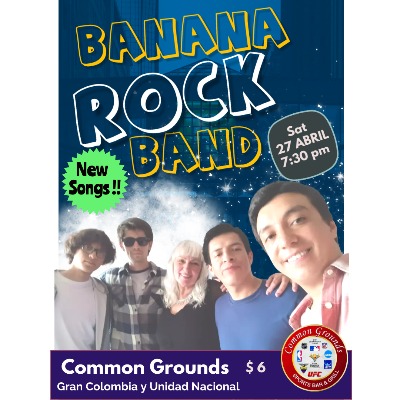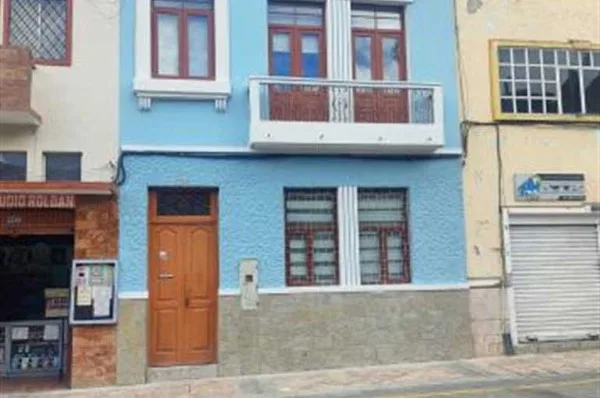Staying safe in Latin America: A former tour guide offers advice about avoiding crime
By Mauricio Olmedo-Perez
When I was mugged by a gang of teenagers in Panama City it was a surprisingly civil transaction, and it was all over in less than a minute.

Tourists are easy marks for savvy thieves.
I was a tour guide and had worked throughout Latin America for a number of years, traveling to some places renowned for their crime rates. Hotspots such as Guatemala, Honduras, Ecuador, Colombia, Mexico, Brazil … well, to be honest you could probably list all the countries we visited as somewhat dodgy compared with North American and European crime rates.
I spent many years dealing with passengers being robbed, some at knifepoint, some with a gun. Some were assaulted, stabbed or shot at. Some were put in sleeper holds from behind and came round with all their possessions gone, common in Lima and Cuzco. Two of my former colleagues have even been killed in different incidents. I thought I’d seen it all and learned my lessons, but in my last month there I was mugged myself.
I’m a Chilean, born in Argentina, so I could normally blend in a little easier than some of my pastier-looking passengers. So, many times I’d walk through areas that tourists wouldn’t; I’d dress down and try and look local.
But I got cocky in Panama City, and wandered into an area I didn’t know much about.
It was the middle of the day, and there were lots of people about, but a gang of about six teenagers surrounded me and told me to hand over my money. What I’d learned was to always stay calm, which no matter how tough you are, is a very difficult thing to do. But not panicking or getting angry is the key to getting out of these situations without injury. You do as you are told, never argue, and try to make the situation finish as soon as possible. I gave them my wallet and my camera, they checked my pockets, pushed me around a bit, but the transaction was surprisingly businesslike and over in a flash.

Always be aware of your surroundings at all times and don’t carry extra valuables with you.
I was shaken, as you never know what these guys are on or what they’re carrying. But I was also happy that some precautions I had taken had worked. I still had a US$20 note, which was folded over four times into a little square, tucked into my sock. I had given them my dummy wallet, which had an expired credit card and a few small notes worth about $5. My camera was insured. I wasn’t wearing any jewellery, no watch, no phone, no passport (just a copy of it in my back pocket) and that’s it. I hopped into the first taxi I saw, (US$20 will get you far in most developing countries) and headed straight to the hotel, grabbed my passport and then went to the police station.
Two years ago, when the All Blacks (rugby team) visited to Buenos Aires, two senior Kiwi rugby officials were mugged. On the same trip my TVNZ colleague Steve Marshall had his camera gear nicked by a couple of blokes on a scooter. Latin America is definitely my favorite region in the world. But many a traveler has seen the dark side of the place and, because crime can happen anywhere, anytime, to anyone, you should prepare for the worst.
In the end I was lucky that things didn’t turn nasty. So were the Kiwis robbed in Buenos Aires last year. For many people, especially first timers, you have to plan ahead. Read about the airport you’re arriving in, check out forums, don’t just depend on guidebooks. In a crowded, chaotic place like Guatemala, for instance, you will be harassed by touts, taxi drivers and thieves. If you look lost, you’re vulnerable so a good step is to just take your time. You’ll be tired from a long flight so your guard could be down.
Also though not officially thieves, some taxi drivers in foreign lands might as well be robbing you because they’ll charge you far too much. They just want you in the car to get a fare. In most parts of the world, paying extra for an airport-controlled driver rather than a cowboy will be worth it. Then you know where you’ll be heading. At the very least get the info desk to write you out your destination in the local language.
Once at the hotel, it’s up to you if leave your valuables in a safe behind the desk. I mostly do, but remember there are no guarantees. Normally there will be signs saying they can’t take responsibility if your possessions are stolen. One hotel I stayed in the Bolivian capital La Paz was held up, and the only target of the armed robbers was the tourist safe. And this happens more than you think.
And your hotel room can be a gold mine for cleaners. Many people take everything out of their packs. For some hotel workers a valuable camera could be worth many months of their wages. If you really need to keep something safe, try this trick: stick it in your dirty laundry bag, very effective in hot countries.
Get a security pouch or belt, they help, but also be realistic. Thieves, especially ones who target tourists, know that we have them and will get at them if they want, but remember crime normally happens quickly so the more discreet you can be with your pouch, the better. I used to sew a little secret pocket into my jeans, one that is away from the other pockets. If you’re a woman, your bra is ideal.
Don’t take jewellery; what’s the point? Many times people take jewellery that’s not worth anything. But do you think a thief will know if jewellery or a watch isn’t worth much from a distance? They’ll see something shiny, something that they want to take and we’re talking about prevention here, not getting mugged for something worthless. Don’t bother taking it, dress down, be simple, what’s the point of being flashy in a developing country?
Going out for the first time is a vital time. I had loads of passengers in Rio mugged near their hotels, simply because it’s a good hunting ground for thieves, and you don’t know the area well. Get directions from the desk, ask if it’s safe and what they recommend. Always take a card or brochure from the hotel which has the address of the place. Check your map before you go out – you’re a sitting duck walking around with your map out in the open: “Yes, I am a tourist who has no idea where I am.” Try to be subtle so you at least look like you know where you’re going.
What to take with you: As little as possible. A camera is replaceable, so take it. As for a passport, I never take it anywhere, even if recommended. Always take a copy, it’s the last thing you want to lose. It also gets manky in hot countries and can be bulky to carry. Yes, in some places it’s the law, but let’s face it, if you do have a brush with the law and it gets to the point of your passport having to be shown, tell them it’s at the hotel. In Peru I’ve known passports to be taken (illegally) by police and used to extort money.
Once in Quito, a Canadian in my group held an iPhone over his head to get a better shot of the public square outside the presidential palace. An alert thief ran by the tourist, grabbing the phone as he passed. Expensive lesson learned.
I’ve painted a grim picture, but remember it’s all about prevention. In my recent travels, I can report that the crime situation in regards to tourists has actually improved in a number of countries I mention, despite increased violence among drug traffickers.
Travelers should do their due diligence in selecting and preparing to visit Latin American countries. This includes understanding that much of what they read on social media is inaccurate. Ecudadorian and Panamian tour guides I know tell me they spend a great deal of time these days showing tourists actual police crime statistics to show that what they’ve read on Facebook, Twitter and other internet plaforms is a gross exageration of reality. In Ecuador for example, Quito and Cuenca continue to be safe destinations despite the well-publicized crime wave among drug traffickers in Guayaquil and other coastal cities.
No matter where you travel in Latin America, however, if you’re smart and cautious you’ll have a great time. But you’re not invincible and even if you’ve been many times and never had an issue, crime can still happen to you.

















